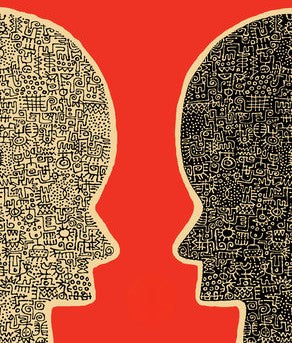
Immigrants Lose Native Language
Share
In the United States, an immigrant family’s native language is lost by the third generation. There are similar statistics for other countries as well. This loss of language and heritage can be described as “the quiet loss.” In the vibrant mosaic of cultures that make up the United States, immigrant communities weave threads of their heritage into the rich tapestry of American life. However, beneath this colorful surface lies a silent struggle - the gradual erosion of native languages and cultural traditions amongst immigrant families. The Nigerian immigrant community is no stranger to this phenomenon as the echoes of their mother tongue often fade into whispers. In this blog post, we delve into the complex dynamics driving this linguistic and cultural loss, and explore strategies to safeguard and celebrate Nigerian heritage in the American melting pot.
The Story of Linguistic Erosion
The first generation of Nigerian immigrants arrives on American shores, carrying with them the cadence of Igbo, Yoruba, Hausa, Edo, and other indigenous languages. These languages are the vessels of their cultural identity, connecting them to the traditions, values, and stories of their homeland. However, as they navigate the challenges of settling in a new country, linguistic assimilation begins to take root. English, the lingua franca of their adopted home, becomes the primary mode of communication in everyday life.
As the second generation comes of age, the pressure to integrate into American society intensifies. English becomes not only the language of convenience, but also a marker of social acceptance and success. Nigerian parents, eager to provide their children with opportunities for upward mobility, prioritize English proficiency over the preservation of their native languages. The home becomes a bilingual battleground, where English dominates and indigenous languages gradually recede into the background.
By the time the third generation emerges, the erosion is palpable. Nigerian grandchildren may understand snippets of their ancestral language, peppered with English phrases, but fluency eludes them. The once vibrant tapestry of Nigerian culture begins to fray, as traditional customs and practices lose their resonance in the face of Americanization.
What can we do?
Multilingual Education: Promote bilingual education programs that value and incorporate Nigerian languages alongside English in school curricula, providing children with opportunities to develop proficiency in both.
Family Language Policies: Establish explicit language policies within Nigerian immigrant households, where parents commit to speaking their native language consistently with their children, fostering intergenerational language transmission.
Cultural Immersion: Create spaces within Nigerian communities in the US where cultural traditions, including language, are celebrated and passed down through storytelling, music, dance, and other cultural practices. Trips back home to Nigeria is an example of a way to provide cultural immersion and exposure.
Language Learning Resources: Leveraging the physical and digital resources available as tools to help individuals practice the language. Tools such as Igbo flashcards and Yoruba flashcards are incredibly beneficial to Nigerians who wish to learn their language, test their pronunciation and improve their vocabulary.
Intergenerational Dialogue: Foster open and ongoing dialogue between generations within Nigerian families, emphasizing the importance of cultural pride and heritage preservation while acknowledging the realities of life in the US.
Embracing Heritage, Building Bridges
As Nigerian immigrants navigate the complex terrain of cultural adaptation in the United States, the preservation of their linguistic and cultural heritage stands as a testament to resilience and identity. By embracing their roots and actively safeguarding their heritage, Nigerian families can bridge the divide between past and present, forging a legacy that transcends borders and generations. In the tapestry of American diversity, the vibrant hues of Nigerian culture find their rightful place, enriching the collective fabric of society for generations to come.
